People Are Sharing Famous Companies That Went Bankrupt Over Bad Decisions, And Now I Finally Know What Happened To RadioShack
Sometimes, companies are so big that it seems impossible for them to fail. But as it turns out, there are countless companies that have failed or nearly bankrupted themselves for ridiculous reasons.
NBCUniversal Television Distribution / Via giphy.com
So, redditor u/WolfgangCaesar asked, "Now that OnlyFans is taking back its ban on sexual content, what other company bankrupted itself (or nearly bankrupted itself) through poorly thought-out or unnecessary decisions?"
People immediately began chiming in with forgotten or humbled companies, so here's the rundown:
1."Friendster shot themselves in the foot with a ton of bad decisions that led to stuff like long login times for basically no reason. It is weird to think that for a short time, Friendster was big and hip enough that I actually had it on one of my business cards around 2000."

What Happened: Friendster was a social networking site founded in 2002, predating both MySpace and Facebook. It gained 3 million users in its first few months and received a lot of media attention, including coverage from Time Magazine, Esquire, Vanity Fair, and Entertainment Weekly. Founder and CEO Jonathan Abrams was even invited onto Jimmy Kimmel Live. In 2003, Google offered $30 million to purchase Friendster, but Abrams declined.
However, Friendster's success also led to challenges. According to the New York Times, "As Friendster became more popular, its overwhelmed web site became slower. Things would become so bad that a Friendster web page took as long as 40 seconds to download." Kent Lindstrom, an early investor and one of the first employees at Friendster, claimed that rather than focus on the technical or performance problems, the board talked about competitors and adding new, unnecessary features, like Internet phone services and VoIP (voice over Internet protocol).
Additionally, there wasn't much to do on Friendster after you created your profile and social network. Meanwhile, other social networking sites, like Myspace, were adding user-demanded features such as blogs and other tools to augment their profiles. Unfortunately, adding these new features to Friendster would only further slow down the site.
On top of that, Abrams was known to be out partying rather than focusing on fixing Friendster. Between 2004 and 2006, Friendster turned over five CEOs. By 2006, Friendster was almost out of money and had halved its payroll to 25 employees. Venture capitalists considered shutting it down, and Viacom was offered the chance to acquire Friendster for $5 million, but private investors invested $3 million into the company instead.
Friendster was able to regain trust and fix most of the issues slowing down the site by 2007. By 2009, Malaysia-based FinTech company MOL Global acquired Friendster for a total of $26.5 million, sold all of its registered patents to Facebook for $40 million, and, in 2011, deleted all of its user’s data to relaunch as a gaming site. According to Wired, despite having millions of users, many users weren't connected to others. And because they were too loosely affiliated with the network, it wasn't worth dealing with the new interface. In 2015, the site shut down.
2."RadioShack. Those guys just couldn't make their niche happen and never attempted to evolve."

What Happened: During the 1970s, RadioShack (founded 1921) was opening three new stores a day as CB radios became popular. In 1977, the company introduced the TRS-80, one of the first mass-produced personal computers, which was so popular that it initially outsold Apple. Unfortunately, by the 1980s, companies like Dell and IBM began selling more powerful computers, so RadioShack turned to cell phones to capitalize on a new market.
As the cell phone market boomed, RadioShack concentrated on selling not only the actual cell phone but also service plans and accessories — even negotiating deals with cell phone carriers to receive percentages of customers' monthly fees. Cell-related sales accounted for 51% of RadioShack's $4.4 billion in sales by 2011.
Due to their success, RadioShack stopped carrying legacy products, and its staff was trained primarily to sell cell phones. However, carriers soon began opening their own retail stores. Between 2000 and 2015, RadioShack's marketing lost focus and management saw constant shifts. This resulted in six different CEOs between 2006 and 2016 and in different slogans such as, "You've got questions, we've got answers," and, "Radio Shack: Let's Play," which confused and failed to connect with customers. On top of this, stores like Best Buy and Walmart began to pop up. They offered lower prices and e-commerce options, pushing RadioShack out of its niche.
While RadioShack still boasted 4,300 stores in North America in 2014, many were too close to each other (near Sacramento, CA, there were 25 stores within a 25-mile radius), causing drops in profitability and inventory problems. This, combined with new competition, overconcentration in the cell phone market, management problems, and financial mistakes — RadioShack took out a loan from Salus Capital under the condition that they couldn't close stores without Salus' consent, leading to cash burns — led to RadioShack losing $1.1 million per day, according to quarterly figured from the end of October 2014.
On Feb. 2, 2015, the company was delisted from the NSYE. On Feb. 3, it defaulted on its loan from Salus. On Feb. 5, RadioShack filed for Chapter 11 bankruptcy. That same year, General Wireless acquired RadioShack for $26.2 million (the total value of the bid for RadioShack's assets was actually around $220 million). In 2017, RadioShack filed for bankruptcy again.
3."One time, Red Lobster offered an unlimited [snow] crab leg deal. They brought the servings out slowly and were like, 'Nobody is going to sit there for six hours and just eat crab legs.' Actually, lots of people did — so many, they lost millions."
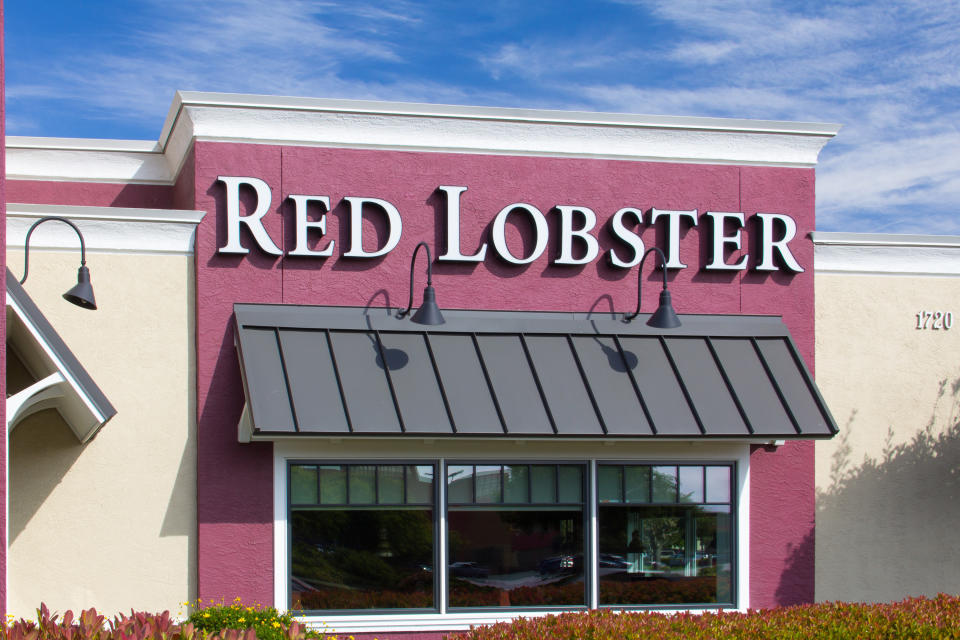
What Happened: A 2021 article from Mashed explains that you could get unlimited snow crabs from Red Lobster for $22.99 a person. However, at the time, the price of snow crabs was rising in the U.S. due to farming quotas, and many people were eating three to four servings of snow crabs.
The article also notes that The New York Post reported that [Red Lobster] lost $405.9 million in stock in a single trading session and $3.3 million in profits.
4."The Hoover UK free airline ticket disaster. The vacuum company devised a plan to offer free round-trip airline tickets if customers bought at least £100 in Hoover products. They underestimated how focused people would be to get free stuff — so they then made it as difficult as possible to actually claim the tickets. People would buy the cheapest thing they could to qualify, send all the forms off perfectly, then try to take legal action when the free flights didn't happen."
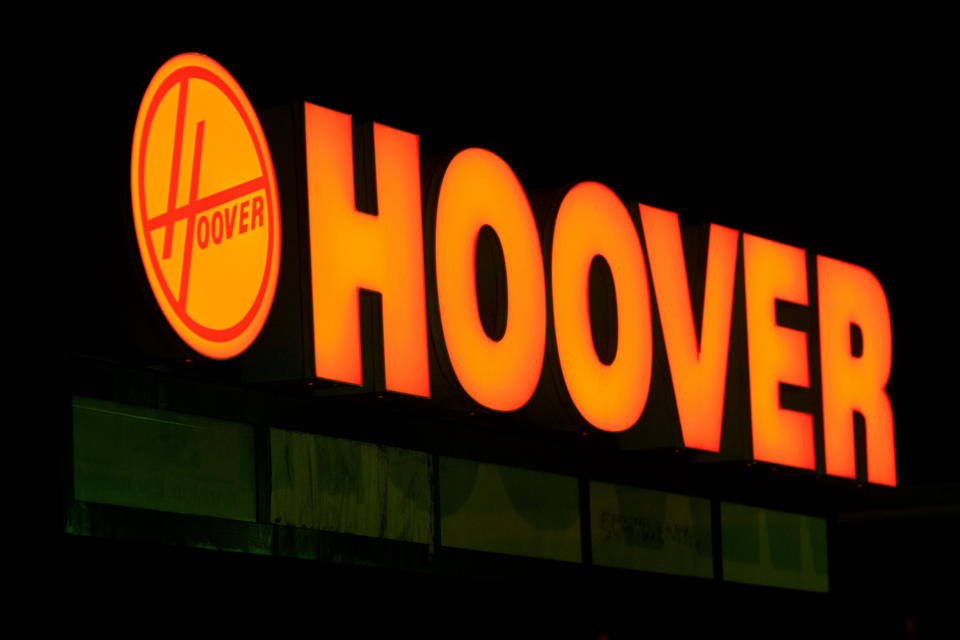
What Happened: In August 1992, the British division of the Hoover Company, the vacuum manufacturer, launched its free flights marketing promotion to boost sales during a global recession. Any customer who purchased at least £100 in Hoover products at a qualifying department store was to receive two free roundtrip flights to the US or Europe. The idea came from a small travel agency, JSI Travel, that was looking to offload cheap flights due to the recession.
Of course, Hoover knew this would be costly if everyone who qualified for the promotion applied, so they intentionally complicated the process. First, a customer had to mail in their receipt and promotion application within 14 days of purchase. Hoover would then send back a registration form, which the customer had another 14 days to return. After, Hoover would send a travel voucher, and the customer had 30 days to choose three combinations of departing airports, dates, and destinations.
But that wasn't all — Hoover then reserved the right to reject the customer's choice, in which case the customer would choose three alternatives, and the right to reject the alternatives and select three combinations of their own choice. If those combinations didn't work for the customer, the customer was out of luck.
Hoover assumed customers wouldn't be willing to jump through so many hoops to claim their flights, but Hoover products were selling out (factories required overtime shifts to keep up with demand). According to The Hustle, "The company generated around £30m in gross sales from the promotion, the cost of the flights was conservatively estimated to be more than £100m."
To save themselves, Hoover began swindling customers out of their flights, claiming customers filled out forms incorrectly, choosing departing airports hundred of miles away from customers, and even sending out forms on Christmas Eve in hopes that customers would miss the 14-day deadline. Sometimes, they'd just claim that customers' applications had been lost.
Naturally, customers were upset. Four thousand customers joined together to form a coalition, while another held a Hoover delivery van hostage by blocking the truck in the driveway until he received his free flights. In response, Hoover began blaming executives, airlines, and travel agencies — even firing the president, vice president, and marketing services director of the British division.
By 1993, Hoover lost £23.6 million in sales, and their American corporate parent Maytag was ordered to pay $72 million in flights. Hoover Europe was then sold to Candy for $106 million, resulting in a loss of $81 million. The company's market share dropped from over 50% to less than 10%, and the company was ultimately disgraced.
5."MySpace. All it had to do was not change, so people could come back to it after checking out Facebook. Instead, they got rid of everything people liked about the site and didn't make any beneficial changes. When people popped back in looking for a Facebook alternative, they found a weird, new music-focused version."
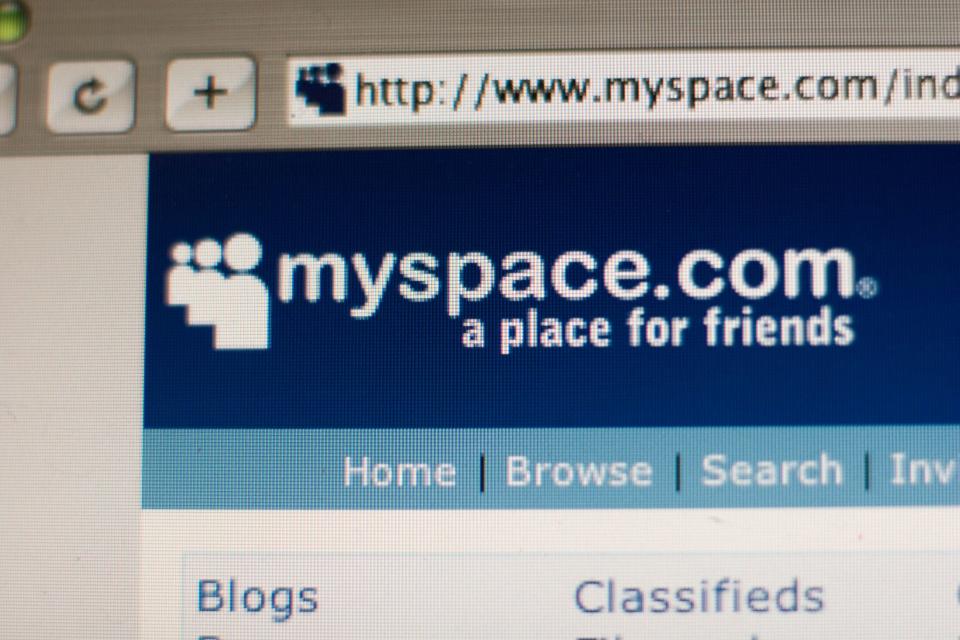
What Happened: As Friendster suffered from technical problems, Myspace entered the scene and offered non-restrictive service, letting users customize their pages and providing new, user-demanded features. It launched in 2003 and was acquired by News Corporation for $580 million in 2005. Between then and 2009, it was the largest social networking site in the world.
After being acquired, Myspace focused on revenue rather than being a technology platform, sacrificing usability and ignoring what users wanted. This led to intrusive ads, many of which asked for users to sign up for credit cards or other services. Additionally, money was sunk into developer resources to create sections that would generate more revenue.
Ultimately, poor product quality (including buggy products on top of sketchy ads), overspending ($120 million was allegedly spent to develop and launch Myspace Music), legal battles that hampered its public image (including some which involved child sexual abuse), and new competition (including from Facebook, Bebo, Twitter, and Soundcloud) led to the decline of Myspace.
Despite multiple attempts to rebrand, Myspace has not recaptured the success it had in 2005. In 2008, Facebook overtook Myspace as the world's largest social networking site. In 2011, Time Inc. purchased Myspace for $35 million, and the now-smaller scale social media platform focuses mainly on music.
6."The UK jewelers, Ratners, nearly went under as a result of a cringeworthy speech from their CEO in 1991."

What Happened: In 1965, then 15-year-old Gerald Ratner began working for his father's small jewelry business. By 1984, he had inherited the company, Ratners Group — Ratners, for short — which consisted of 120 traditional storefronts and annual losses of £350k. For context, as the Hustle notes, jewelry had been incredibly elitist before the 1980s and thrived on exclusivity. However, Ratner realized that London street shop vendors who were loud and had garish displays made the most sales. So, he began employing that strategy in his jewelry stores.
Using vibrant posters and all-caps signs, marking all pieces with price tags, and placing lower-priced items in the front windows, Ratner began marketing his jewelry toward a broader, working-class demographic. While other jewelers found his strategy to be tacky, Ratners grew to more than 2,500 storefronts, boasted annual sales of £1.2 billion, and dominated 50% of the UK jewelry market by 1990.
In 1991, Ratner was invited to speak at the Institute of Directors annual convention, and a public speaking consultant suggested he include some jokes in his speech. Unfortunately for Ratner, his jokes doomed his business, the most headline-inducing one being, "Ratners doesn’t represent prosperity — and come to think of it, it has very little to do with quality as well. We do cut-glass sherry decanters complete with six glasses on a silver-plated tray that your butler can serve you drinks on, all for £4.95. People say, 'How can you sell this for such a low price?' I say, 'Because it's total crap.'"
Headlines claiming that Ratner had called his own products "crap" flooded the news — the Sunday Times went as far as nicknaming him "Gerald Crapner" — and within days, Ratners Group shares fell by £500 million. By the end of the year, its stock had dropped 80%.
Despite company claims of shifting consumer spending habits and the recession, Ratners resigned as chairman before eventually being fired as CEO in 1992. The term "doing a Ratner" became slang for doing something entirely avoidable but monumentally damaging. In 1993, Ratners Group rebranded as Signet and has since become the world's largest retailer of diamond jewelry.
You can check out Ratner's speech here:
7."WeWork was going great right up until the IPO prospectus, and everyone realized that CEO Adam Neumann was a crazy person. Neumann himself managed to personally walk away with $1B in exchange for lighting tens of billions of dollars of investment on fire. Truly epic."

What Happened: WeWork, the commercial real estate company providing shared workspaces (ideally for startups and freelancers), experienced a meteoric rise and fall under co-founder and CEO Adam Neumann. Neumann founded WeWork in 2010 with Miguel McKelvey. Six years later, WeWork had been dubbed a unicorn company with a $10 billion valuation. By 2019, SoftBank had reportedly invested $18.5 billion into WeWork. That same year, WeWork publicly filed documents for an IPO, triggering its public fall.
To note, there had been concerns about the company's unsustainable business model and profitability since 2015, when BuzzFeed News published the documents that WeWork had used to convince investors of its multi-billion worth. In 2017, Wall Street Journal Real Estate called WeWork "a $20 billion startup fueled by Silicon Valley pixie dust."
The company, or better, Neumann, had been known for fostering a fun "office culture," including perks such as cold brew, community events, and even unlimited, free beer on tap. However, it began limiting beer in 2018 after an employee filed a lawsuit, alleging that she'd been sexually harassed and fired in retaliation for reporting the two incidents. She cited the company's excessive drinking culture as a contributing factor and that the male employees interrogated "professed to be too drunk to remember the incident."
On the other hand, to help "develop personal accountability" in employees, McKelvey announced a new vegetarian policy: The company would no longer serve red meat, pork, or poultry at company functions or reimburse employees who ordered hamburgers during meetings.
Neumann once allegedly smoked so much weed in WeWork's private jet that the flight crew found a sizable chunk of marijuana in the plane, causing the plane to be recalled. His wife also reportedly demanded "employees be fired within minutes of meeting them because she disliked their 'energy.'" And, after an all-hands meeting in which Neumann detailed firing 7% of WeWork's staff to cut costs, the meeting wrapped up with shots of tequila and a set performed by hip-hop group Run-DMC.
In January 2019, WeWork had a valuation of $47 billion. By October, the time of its IPO filing, WeWork's valuation had dropped to $10 billion, in part due to Neumann's reckless behavior and leadership. Within six weeks of filing, Neumann was ousted as CEO and WeWork tanked. The filing didn't necessarily reveal new information, but as the Guardian expressed, "Widely known facts were re-aired in a new climate. What was once amusing or somewhat confusing was now, in a new light, merely horrifying. ... WeWork’s investors folded quickly, suddenly demanding from the company the focus and discipline critics had been saying was missing for years." However, the IPO filing did reveal that WeWork paid Neumann nearly $6 million for trademark rights for the word "We." As a result, Neumann returned the money to WeWork while letting it retain rights to the trademark.
As WeWork's reputation plummeted and its leaders lost faith in Neumann, SoftBank paid him $1.7 billion to step down and leave the company. SoftBank also initially agreed to pay Neumann $960 million for his shares, a $185 million consulting fee, and $500 million in credit to help repay his loans.
Including Neumann's shares, SoftBank had agreed to buy a total of about $3 billion in WeWork stock as part of a bailout package. The company later backed out of the agreement, citing government investigations into WeWork. In turn, WeWork and Neumann independently sued SoftBank over the withdrawal, and all three parties settled. Under the settlement, Neumann received $480 million for his shares. Currently, SoftBank owns a majority of WeWork shares.
8."Circuit City. It was a major retail chain in the 1980s that collapsed under mismanagement. Its arguably biggest blunder was firing all of their experienced, better-paid workers for cheaper, inexperienced ones. Apparently, selling merchandise and keeping customers happy are important in the retail business. Who knew?"

What Happened: Consumers cited Circuit City's most obvious failing as its customer service, according to a 2008 article from Time. "In March 2007, [Circuit City] announced plans to lay off its highest-paid hourly employees, including salespeople, and replace them with cheaper workers. That same year, then CEO Philip Schoonover received some $7 million in compensation."
The highest-paid employees were the most experienced employees (who had accumulated higher wages over the years). Circuit City also outsourced its IT department. After the company fired over 3,000 employees, WSWS reported, "The firings are the most abrupt and brazen manifestation of a trend by corporate America to push out older and better-compensated workers and replace them with a smaller, younger, uninsured and underpaid workforce."
9."Quiznos. The corporate office decided to buy the vendors and then contract all of the franchises to only buy materials from corporate with a price hike. The margins got way too high, and all of the stores went out of business. They shot themselves straight in the foot."
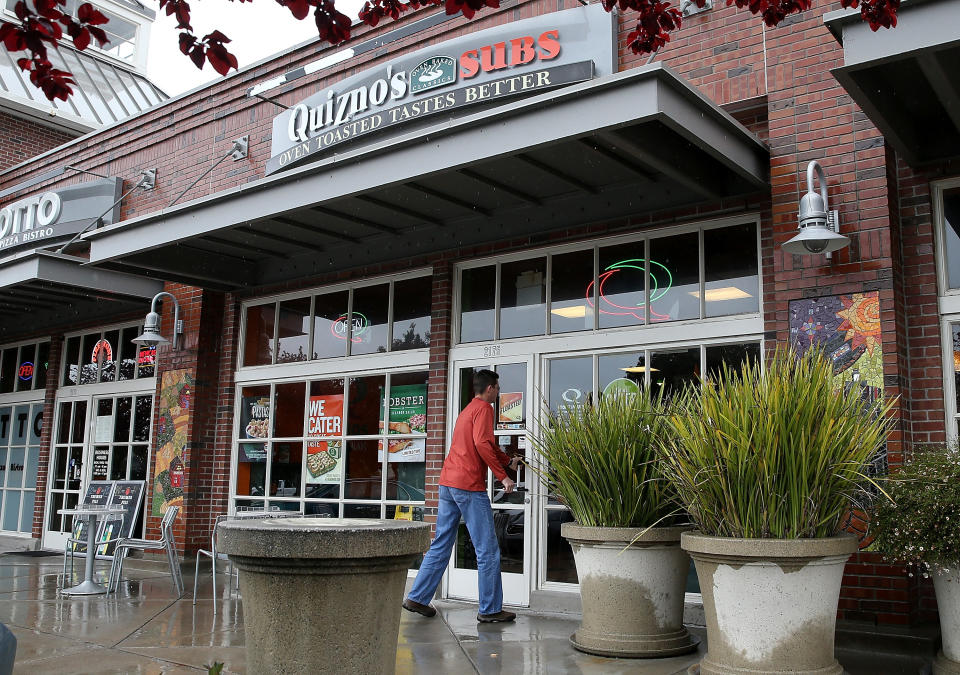
What Happened: A 2021 article from Eat This cites that "Quiznos reached a high of $1.9 billion in systemwide sales in 2007" but "generates less than $100 million a year in sales across all its stores" as of this year. The article goes on to say that experts attribute Quiznos' fall to rapid expansion at the expense of their franchisees.
Quiznos onboarded inexperienced franchisees and made "difficult financial demands which precluded these small operators from making a profit." Eat This also cites YouTuber Company Man, stating that a large portion of Quiznos' revenue came from franchise fees.
They also sold "food and paper products to its franchisees through a subsidiary called American Food Distributors. Operators were forced to buy these supplies at prices far higher than the industry average, while Quiznos directly profited from hiking up the prices."
10."Xerox. They had a research lab, the Palo Alto Research Center (PARC), that invented the personal computer, and a working prototype in 1973. This was a time when the concept of a personal computer didn't exist — everything was mainframes. They also invented laser printers, computer graphical interfaces, WYSIWYG text editor (a precursor to Word, etc.), Ethernet (which much of the internet runs on), and much more. Steve Jobs got a tour of PARC in 1979 after Xerox sat on the invention doing nothing (they made copiers, goshdarnit), and the rest is history. Xerox then almost went bankrupt in 2000 as the world transitioned to email, powered mostly by personal computers and the internet."
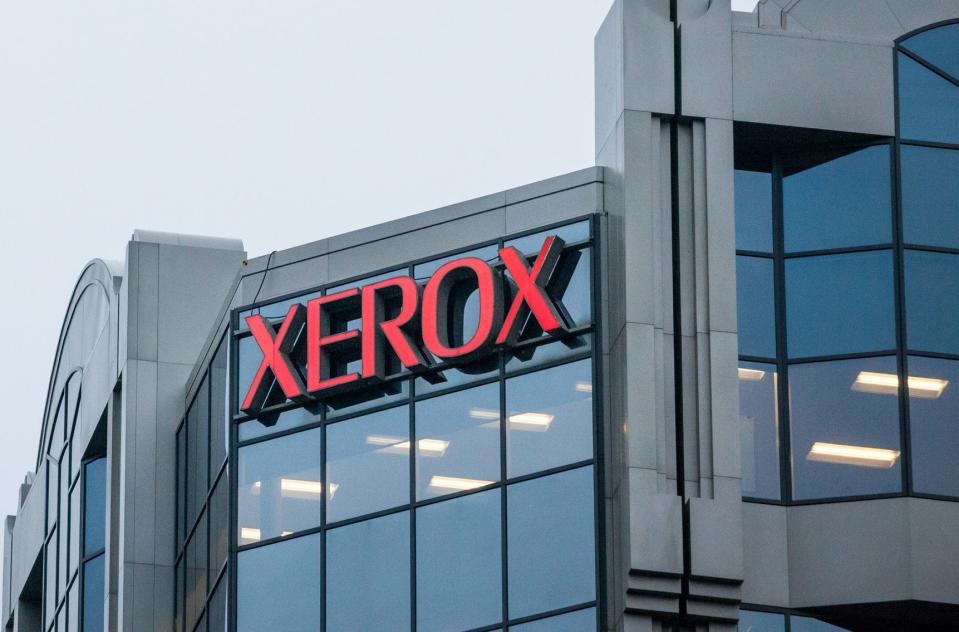
What Happened: In 1959, Xerox introduced the Xerox 914, the world's first automatic, plain-paper copier. Its innovative ad campaign featured a monkey making photocopies to highlight how simple it was to use. The 914 was a huge success, and by the 1960s, Xerox was the dominant manufacturer of office copiers.
In 1970, Xerox opened the Xerox Palo Alto Research Center (PARC), which invented many modern computing technologies, including graphical user interface (GUI), laser printing, WYSIWYG text editors, Ethernet, WIMP (Window, Icon, Menu, and Pointing device) system, mouse, and much more. Some of these early PARC technologies were seen in the Xerox Alto, released in 1971 and believed to be the future of computing. The Alto was a minicomputer, similar to a modern PC, and the first computer designed to support an operating system based on GUI.
In 1979, Steve Jobs visited PARC after a deal with Xerox's venture capital division: Xerox could invest $1 million in Apple in exchange for a tour of their technology. The myth then goes that Jobs had Apple Development incorporate what he saw at PARC into Apple computers and invited some key researchers to join Apple. Engineer Larry Tesler, who gave Jobs a demonstration of the Alto, later said, "Jobs was pacing around the room, acting up the whole time. He was very excited. Then, when he began seeing the things I could do onscreen, he watched for about a minute and started jumping around the room, shouting, 'Why aren't you doing anything with this? This is the greatest thing. This is revolutionary!'"
Job's line of thinking is what many consider to be Xerox's downfall: An inability to capitalize on market potential and commercialize products despite inventing revolutionary tech. For instance, Xerox released the Star, the first commercial system to use technologies now common in PCs, in 1981. However, the Star failed to sell well. It cost $16,595 (around $47,240 in 2020), while the IBM PC, released the same year, cost around $1,565 (roughly $4,455 in 2020). In 1984, Apple released the Macintosh — the first successful mass-market, all-in-one personal computer to have a GUI, mouse, and built-in screen — which cost $2,495 ($6,220 in 2020).
The 1980s were "generally rough" for Xerox. It had dropped out of the mainframe and personal computer businesses. By 1985, Xerox only held 40% of the worldwide plain-paper copier market, a significant drop from its 85% market share in 1974. The company experienced somewhat of a resurgence in the 1990s, releasing new products (like DocuTech) and rebranding as "The Document Company." In spite of this, the company restructured in 1998 and cut 9,000 jobs. By the end of 1999, shares had plunged after the company warned of disappointing quarterly profits.
By 2001, the company was on the verge of Chapter 11 bankruptcy with more than $17 billion in debt. Xerox's inability to capitalize on the commercial potential of its innovations was in part due to management. PARC scientists even condescendingly dubbed executives "toner heads" due to their inability to think beyond photocopiers. In 2002, PARC broke away from Xerox as an independent, wholly-owned subsidiary. Xerox has since managed to turn itself around and generated approximately $7 billion globally in 2020.
Here's the monkey commercial for the Xerox 914:
11."Blackberry. Most popular smartphone in the world — then they were less than 1% of the market share, and their stock value dropped. A couple of years ago, they announced that they would focus more on software and essentially gave up making phones. Lots of BlackBerry executives took advantage of their market share and thought a flat, touchscreen phone wouldn't take off the way it did. How the mighty have fallen."

What Happened: In 2009, Fortune magazine named Blackberry the fastest growing company in the world, but by 2013, Blackberry's stock price collapsed by 90%. Blackberry's insistence on producing phones with full keyboards — despite consumers' preference for touchscreens — is cited as a big reason for their failure to keep up with Apple's iPhones and Google's Androids.
While they had once controlled 50% of the smartphone market in the US and 20% globally, Blackberry had 0% of the market share by 2016. That same year, Blackberry announced it would stop making its own phones and signed over most of its global branding rights to Chinese manufacture TCL.
In 2020, Blackberry ended the arrangement with TCL, and Texas start-up Onward Mobility acquired a license to make 5G devices — one being a 5G BlackBerry device with Android and a physical QWERTY keyboard — for Blackberry in 2021.
12."Teledesic. Their goal was to have a global network of low-Earth-orbiting satellites that provided broadband access to pretty much everyone on the planet. They were financed by tech titans in the wireless communications space. It all seemed like a great idea. The only problem was that the technology wasn't there yet. They went bankrupt in 2002. The Teledesic Case Study is taught at Harvard Business School and other MBA programs as a cautionary tale."

What Happened: Teledesic formed in 1990 to build a global broadband satellite network, and it took off in 1994 when Craig McCaw (who had just sold McCaw Cellular Communications to AT&T) and Bill Gates (who remained a passive investor) each invested $5 million. The ambitious idea was to provide wireless internet access around the world so that, as the Seattle Times exemplified, "Field hospitals would use it to beam images to consulting doctors in cities. The military could send information to forces in remote areas. Faraway spots that lacked even basic telephone service would be able to access data beamed down at high speeds from orbiting satellites." The project would cost $9 billion.
Teledesic got as far as convincing the UN and the US to set aside a portion of airwaves to carry Teledesic network signals, and they raised around $900 million in cash. The company originally predicted operation would begin by 2001. But when Boeing came on as the satellite contractor in 1997, the start date was pushed to 2002. A year later, Boeing was replaced by Motorola, and the start date was pushed back to 2003. By 1999, the satellite industry began to collapse. Two big satellite mobile-phone companies, Iridium and ICO, filed for bankruptcy, further pushing back the start date to 2004.
McCaw then began raising and investing money in Iridium and ICO to merge with Teledesic, and some employees began to feel frustrated. The company also saw at least seven different CEOs between 1993 and 2000. Eventually, Alenia Spazio replaced Motorola as contractor. While the original idea included 840 satellites, the contract with Alenia Spazio only included 30 satellites, and the cost of the project was cut to $1 billion. By then, Teledesic was down to 50 employees.
In 2002, Teledesic laid off all but 10 employees, suspended its satellite contract, and officially halted the project.
13."JCPenney tried to stop bullshitting customers, and it backfired. They said no more sales. They were just going to price everything low because pretty much all sales at department stores are lies, anyway. You’re not really getting 70% off — the retail price was deliberately set stupid high to convince you it was a great deal, but the discount price is the actual value of it. JCPenney’s heart was in the right place, but ultimately, it failed because customers are really that dumb and would rather be lied to."

What Happened: In 2012, JCPenney announced no more "fake prices." Instead, their new pricing structure set original prices at least 40% lower than their previous prices so that customers no longer needed to rely on sales or coupons. However, when the company released its first-quarter results, it reported a $163 million net loss.
Time reported that a woman interviewed in an Associated Press story said, "The closest JCPenney is about a half-hour away from me. If I don’t get a special discount, it’s not worth the trip."
14."Blockbuster had the chance to buy Netflix, but they were extremely stupid and turned them down. Now, they're gone and just a fond memory of the '90s. They were on their way out even before Netflix with services like Red Box and Game Fly, which mailed movies to you. Man, they were stupid. The writing was on the wall for years."
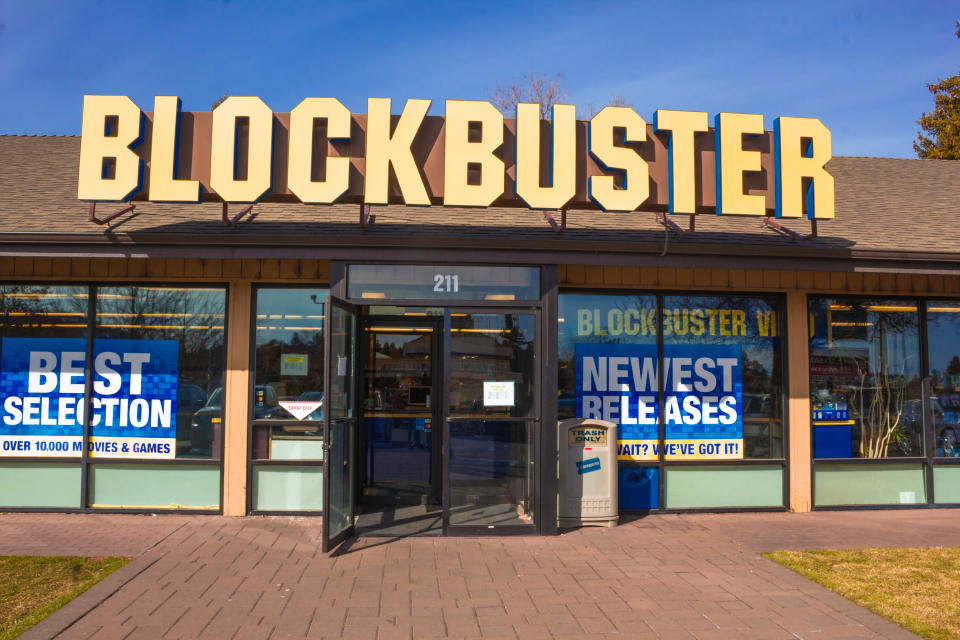
What Happened: While many attribute Blockbuster's fall to Netflix, the home movie and video game rental company had been declining even before then. Founded in 1985, Blockbuster saw growth until 2004, when it peaked with more than 9,000 stores and employed approximately 58,500 people in the US.
Despite Blockbuster being a multi-billion dollar company, co-owner Wayne Huizenga worried about how new tech, like video on demand and cable TV, would affect business even in the early 1990s, especially as the growth rate of VCR ownership had gone down in the US.
In 1997, Warner Bros. offered Blockbuster an exclusive, early-access rental deal — wherein Blockbuster could release DVD rentals before they went on sale to the public — but Blockbuster declined. Instead, Walmart seized the deal, and other mass retailers began selling DVDs below wholesale price. Blockbuster couldn't match such prices, severely impacting its business model.
In 2000, Netflix co-founder Reed Hastings offered to sell Blockbuster to Netflix for $50 million, but Blockbuster declined as CEO John Antioco thought it was a small niche business. A former Blockbuster executive also told Variety, "Management and vision are two separate things. We had the option to buy Netflix for $50 million and we didn't do it. They were losing money. They came around a few times."
Between poor leadership, the recession, and competition from wholesale retailers and new technology (including Redbox kiosks), Blockbuster saw significant losses in revenue throughout the late 2000s. It filed for bankruptcy protection in 2010. In 2011, Dish Network acquired Blockbuster for $320 million. By 2018, only nine franchise-owned stores remained in the, eight of which closed that year.
The last location remained in Bend, Oregon, and was listed as an Airbnb rental for 1990s-themed sleepovers for three nights in 2020.
15."On paper, Sears had everything to be the e-commerce retailer that dominated the globe. By 1985, they had their own credit card, Discover, to rival MasterCard and Visa. They had their own insurance company in Allstate. They partnered with IBM to create 'Prodigy,' one of the first proto-ISPs in 1984, that offered all sorts of online services (except buying stuff from Sears) years before the World Wide Web existed. In theory, they were posed to make e-commerce a thing back in the late '80s and sweep the world in the '90s — with no chance for outsiders like Amazon, who had to build their stuff from the ground up, to catch on."
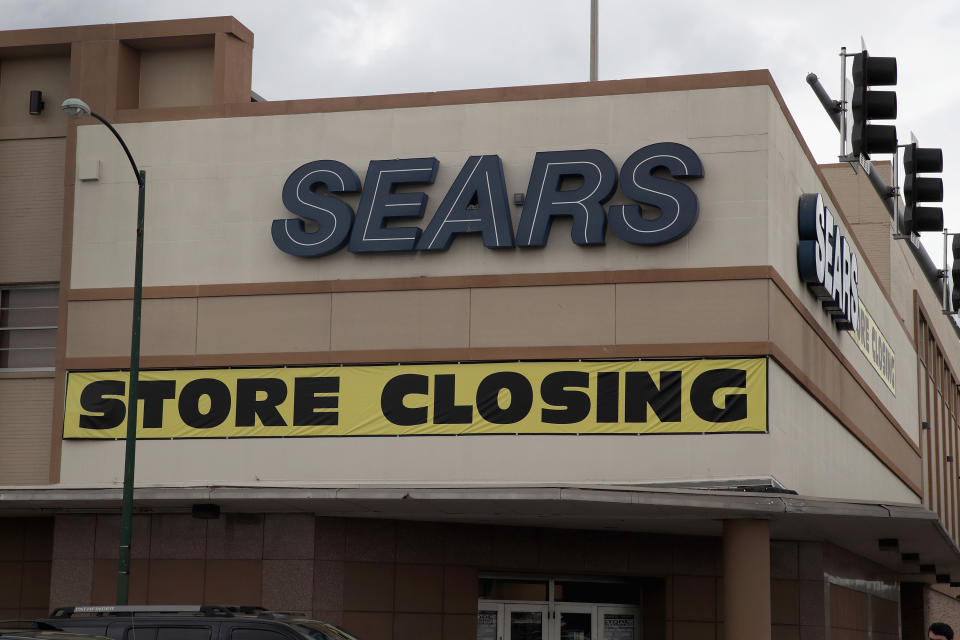
What Happened: Sears launched the Discover card nationwide in 1985 with no annual fee and a higher credit limit than most other credit cards. At the time, Sears was the largest retailer in the US. Discover later introduced the innovative "Cashback Bonus." However, by the fourth quarter of 1986, Sears lost $22 million in credit card operations. Sears sold its financial business in 1993 and began accepting MasterCard and Visa, in addition to Discover.
Sears named Allstate Insurance after a car tire it sold in its catalog. In 1993, it took almost 20% of the company public and by 1995, AllState became fully public.
Prodigy, an online server turned Internet service provider, began in the late '80s as a joint venture between Sears and IBM. By 1990, Prodigy was the "second-largest server of its kind" and enabled users to shop, email, participate in online forums, and read news online. Despite becoming the largest server in 1993, Prodigy eventually suffered from low pricing, heavily moderated forums, privacy concerns, and the taking away of its unlimited chat feature. In 1996, Sears and IBM sold Prodigy.
16."Schlitz. Throughout the '60s, it was one of America's biggest national beers. In 1974, Schlitz's president and chairman, Robert Uihlein, Jr., believed beer drinkers couldn't distinguish their favorite beer from other brands and oversaw the introduction of a slimmer brewing process. It replaced barley with corn syrup and used silica gel as a preservative during the brewing process that was then filtered out, i.e. didn't have to be listed as an ingredient. Instead, the beer spoiled faster, grew cloudy on racks, didn't produce a frothy head when poured, and was flavorless — resulting in a 100-million bottle recall. Schlitz also didn't realize light beer was becoming a thing, so it got its clock cleaned by Bud and Miller. It then ran an ad campaign with some belligerent-sounding guy threatening to kill another guy, who was off-camera, if he took his Schlitz away. By the '80s, it went back to its original brewing process, but the damage was done."
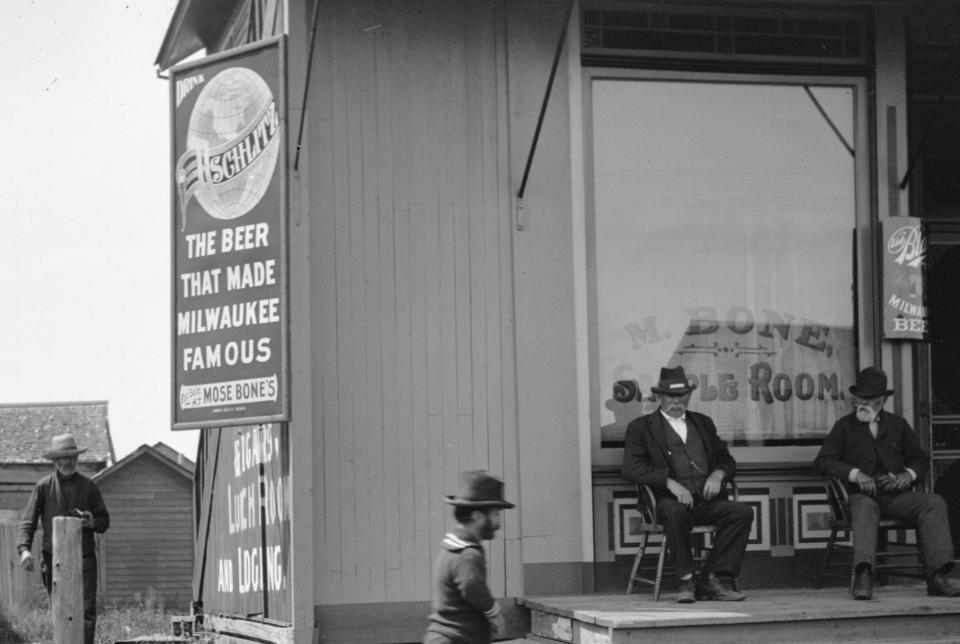
What Happened: Schiltz was the world's top-selling brewery in 1934, but by 1982, it was bought out by Stroh. The 'Schlitz Mistake,' as it's notoriously called, was the company's attempt to cut corners on quality to save on costs in the early 1970s. It implemented a new process called "accelerated batch fermentation." When the company recalled more than 100 million cans and bottles of beer, it lost more than $1.4 million.
In 1976, Schlitz tried to combat the success of Miller Lite and launched Schlitz Light, but it was deemed a failure. To turn around its declining sales, Schlitz launched a disastrous ad campaign in 1977, dubbed the "Drink Schlitz or I’ll kill you" campaign. The ads failed so badly that Schlitz pulled them 10 weeks after they aires and fired their advertisers.
For your viewing pleasure, here's a "Drink Schlitz or I'll kill you" ad:
17."Can we get an honorable mention for Staples and its multiple attempts to merge with Office Depot, despite the fact that they're both on track to die within the decade?"
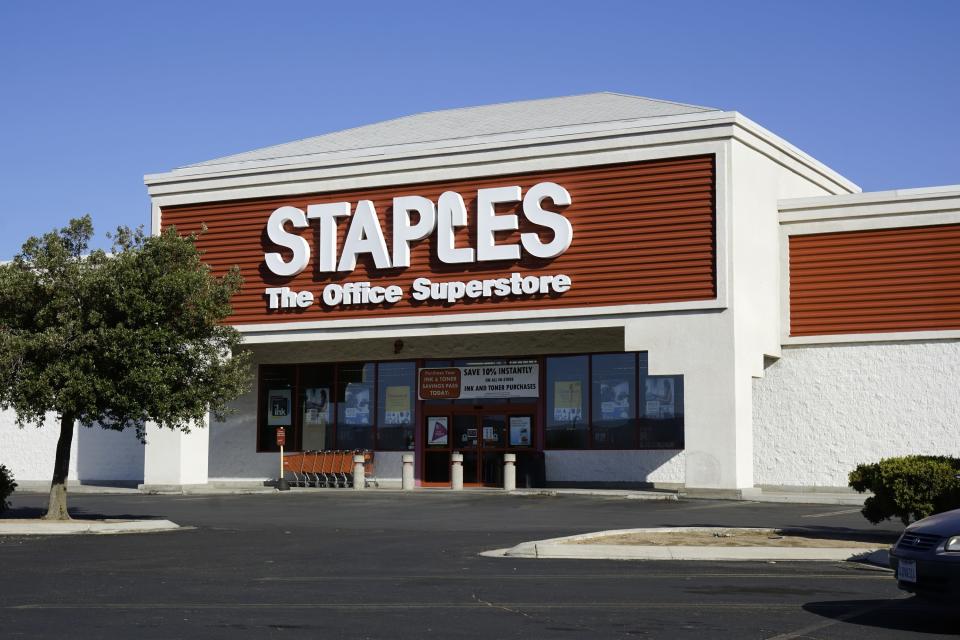
What Happened: Staples was founded in 1986 and, 10 years later, had made it into the Fortune 500. In 1996, Staples reached an agreement to acquire Office Depot for $3.36 billion in stock, but the FTC blocked the deal as the merger would reduce competition and increase office supply prices. Instead, the company opened 170 new stores in 1996 and 1997 and continued to grow despite the 2000 Dot-com bubble burst and the 2001 recession. In 2002, Staples generated $11.6 billion in sales and had 1,300 store locations. Its online business, launched in 1998, was also now transforming North American commercial delivery.
That same year, Staples saw a new CEO and a new strategy, shifting from growth to profitability. By 2007, Staples was no longer an EDLP (every day low price) value retailer but a hi-lo promotional (a pricing strategy wherein a business charges a high price for a product, then decreases the price through promotions or sales) business. By the 2008 recession, Staples was still the leading office-supply retailer, closing 2007 with $19.4 billion in sales.
Because of this success, Staples had begun expanding into international markets and acquiring companies (and hastened to do so as the US economy softened), raising its total debt from $350 million in 2007 to more than $4 billion by the end of 2008. Between 2008 to 2011, Staples' international business saw significant losses. Similarly, Staples' stock dropped by 37% while the overall market increased by 21% between 2008 and 2013.
To combat these losses, Staples began aggressively cutting costs, reducing store count, and selling general merchandise beyond office supplies (including hammers, blenders, and stethoscopes, for example). However, these strategies proved unsuccessful, and, in 2014, revenues fell by $2 billion since 2012.
Despite this, in 2015, the company announced it planned to acquire Office Depot for $6.3 billion. For context, Office Depot had also struggled during the recession. As in 1996, the FTC blocked the deal. Staples subsequently called off the sale, announced hundreds of layoffs, and was ordered to pay Office Depot a $250 million breakup fee. In 2017, Staples then attempted to reposition itself as a solutions partner for business, downplaying its retail operations, and was acquired by Sycamore Partners for $6.9 billion.
In January 2021, Staples once again attempted to acquire Office Depot, offering $2.1 billion, which Office Depot rebuffed. Staples then offered $1 billion for Office Depot's consumer business in June 2021 and filed for antitrust approval in November.
Do you remember any of these companies? If so, did you realize this is what had happened to them? Tell us that and what other companies you'd add in the comments below!
Updated to clarify how much Adam Neumann received for the sale of his shares after settling with SoftBank and SoftBank's current WeWork shares.

